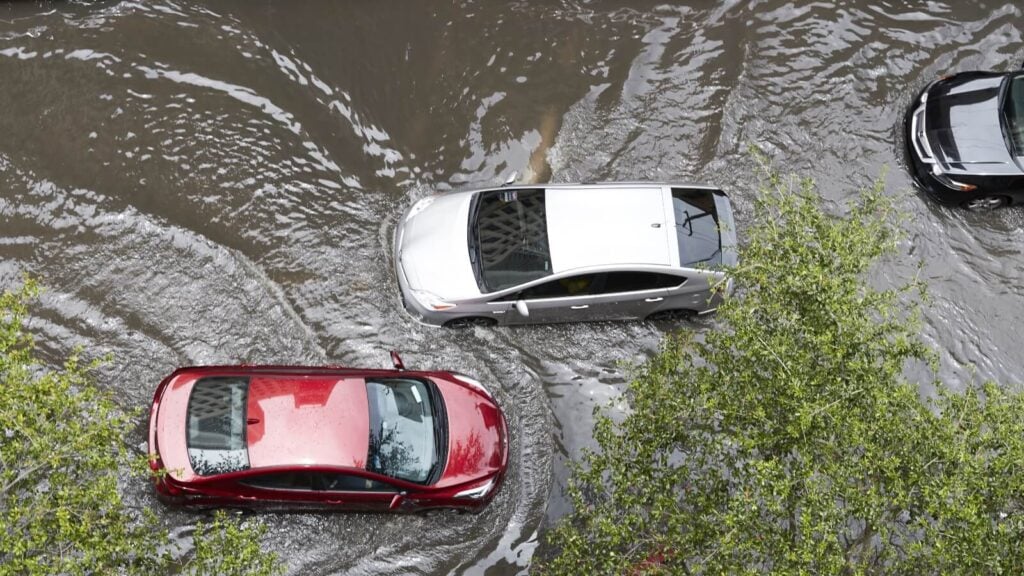The US National Weather Service (NWS) has issued its first ever Flash Flood Emergency, and it’s second just an hour after, as the US east coast is hit by fatal torrential rain. Experts say the extreme weather was brought on by the accelerating climate crisis.
Record-breaking rainfall
Remnants of Hurricane Ida caused the flash flooding and at least one tornado, with New York, New Jersey, Pennsylvania and parts of Connecticut affected.
At least nine people have died due to the flooding, including a teenager and a two-year-old boy.
New York City saw 35 billion gallons of rainfall – enough to fill 50,000 Olympic swimming pools – in just a five-hour period, CNN reports.
Central Park also suffered its wettest hour on record since at least 1869, which is when rainfall began being recorded there. The record had been broken just last month during the aftermath of Tropical Storm Henri.
In Louisiana, which was hit by a Category 4 hurricane on Sunday, nearly one million homes and businesses are still without power. Some residents have been told that the outages could last at least a month, and New Orleans is currently under a night-time curfew.
Climate crisis blamed
Thousands of people have taken to social media to share footage of the catastrophic impacts, as people become trapped in floating cars and in subway stations.
“Our infrastructure is not ready for climate change,” wrote Brian Kahn, journalist and faculty member of Columbia University’s Climate and Society program.
NYC Councilmember Mark Levine expressed similar concerns. “Every single subway line in NYC is now shut down due to the storm. The entire system,” he wrote on Twitter. “We are BEYOND not ready for climate change.”
Accelerating weather disasters
The human-driven climate emergency makes extreme weather events more likely.
In fact, weather disasters around the world are hitting four to five times more often compared to the 1970s, the United Nations weather agency reported. They are also causing seven times more damage.
“The number of weather, climate and water extremes are increasing and will become more frequent and severe in many parts of the world as a result of climate change,” commented Petteri Taalas, Secretary-General at the World Meteorological Organization.
“That means more heatwaves, drought and forest fires such as those we have observed recently in Europe and North America.
“We have more water vapour in the atmosphere, which is exacerbating extreme rainfall and deadly flooding. The warming of the oceans has affected the frequency and area of existence of the most intense tropical storms,” he added.
Human-driven
President of New York City’s Queens Borough Donovan Richards spoke to CNN about the disaster, and urged the federal government to do more to fight climate breakdown.
“These catastrophic storms are going to be more frequent as we move forward based on what we know all too well that climate change is going to continue to [rear] its ugly head,” he said.
“We don’t have time to whittle our thumbs here. We’re running up against the clock. The clock is already ticking. We’re here. If we don’t move aggressively to combat climate change, we’re going to continue to lose life unfortunately.”
Last month, IPCC Working Group I Co-Chair, Valérie Masson-Delmotte, stated that the ‘role of human influence on the climate system is undisputed’.
As such, more people are looking for ways to lighten their impact on the planet – flying less, refining their recycling efforts, and adjusting their diets. The latter, according to researchers from Oxford University, is perhaps the most influential thing an individual can do.
“A vegan diet is probably the single biggest way to reduce your impact on planet Earth, not just greenhouse gases, but global acidification, eutrophication, land use and water use,” said Joseph Poore, who led the world’s most comprehensive analysis of farming’s impact on the planet.
“It is far bigger than cutting down on your flights or buying an electric car,” he said.
To learn more about the climate crisis and what you can do, see here.






